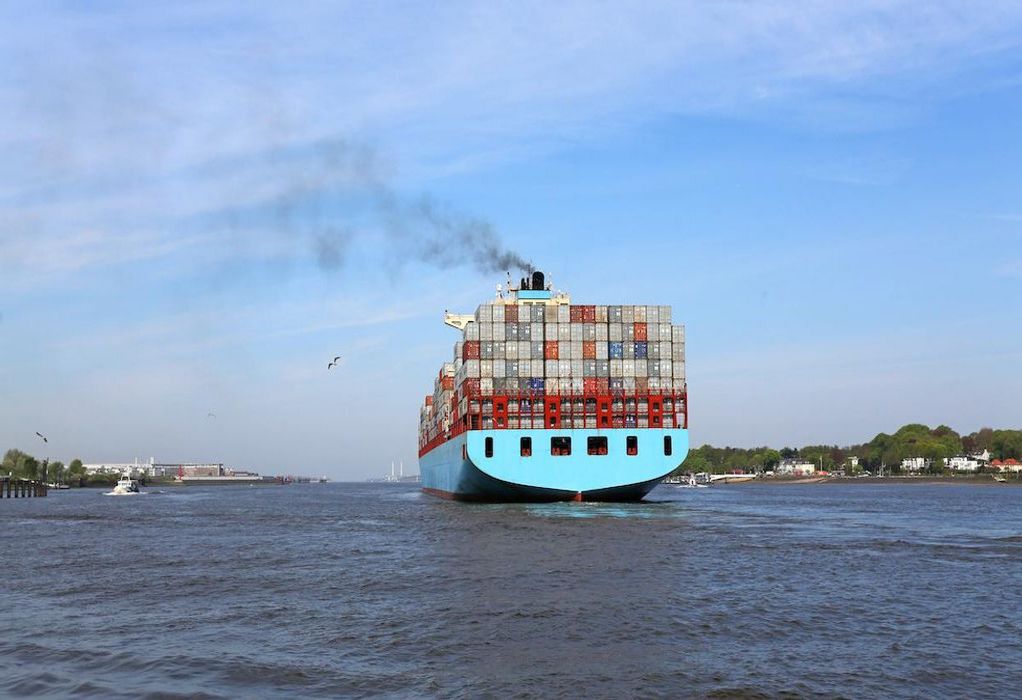The report titled “Opportunities for the UK to kick-start shipping’s transition to zero emission fuel” has been published by UMAS, an independent maritime and energy decarbonization consultancy, and Arup, a global sustainable development and engineering consultancy. It outlines actionable ways the UK can become an early mover in maritime decarbonization.
The urgency of meeting shipping’s decarbonization targets is underscored by the International Maritime Organization’s (IMO) revised Greenhouse Gas (GHG) strategy, which sets ambitious goals for zero or near-zero GHG emission energy sources to constitute between 5% and 10% of the energy used by international shipping by 2030.
This will require the simultaneous scaling up of production facilities and supply chain infrastructure in the UK, including renewable energy and green ammonia production facilities. Coupled with ongoing uncertainty regarding the development of zero GHG emission fuels, related to demand, scalability, and cost-effectiveness, there is currently a perceived lack of confidence from stakeholders, in turn inhibiting much-needed investment, according to the report.
The research explores the potential impact and infrastructure needed to decarbonize the operations of six large ferries operating regular routes from ports in the Northeast of England, or seven container vessels operating from ports in the Solent, on the South Coast.
Findings demonstrate that the potential carbon savings could align shipping in these regions with the most ambitious decarbonization international trajectories.
Leveraging UMAS’s first mover route identification tool ‘FUSE’, and Arup’s expertise in zero-emission fuel production, design and delivery, the report demonstrates that the UK has an opportunity to become an early mover in the space, as well as develop critical last-mile infrastructure to help secure its position in the future fuels market. The report examines crucial factors that influence scalable zero-emission fuel supply and demand in the UK and sets a proven framework for global sustainability efforts.
Understanding current shipping energy demand is said to be instrumental in identifying opportunities to concentrate decarbonization efforts and mitigate investment risks. UMAS has provided key insights into the energy makeup of fleets operating in dynamic port areas such as the Northeast (including Teesside, the Humber, and the Tyne River) and the Solent strait (Southampton-Portsmouth).
The study found that decarbonizing a portion of the energy demand in these regions presents a tangible pathway towards achieving the IMO’s decarbonization goals. For instance, the estimated demand for heavy fuel oil equivalent in the Northeast in 2023 is approximately 513 ktonnes, while the Southampton/Portsmouth port area has a demand of around 751 ktonnes.
Decarbonizing just 10% of this demand using methanol, ammonia, or hydrogen-derived fuels would create substantial progress towards sustainability.
Novashare: Share Count Recovery
Toggle panel: Novashare: Share Count Recovery
Yoast SEO
Toggle panel: Yoast SEO
Novashare: Details
Toggle panel: Novashare: DetailsSocial Media Image (1200×630)
UploadSocial Media Title70 Characters RemainingSocial Media Description200 Characters RemainingPinterest Image (1000×1500)
UploadPinterest Hidden Images
Add ImagesHide Inline ContentHide Floating Bar
?PostBlock
Summary
VisibilityPublic
PublishImmediately
The report titled “Opportunities for the UK to kick-start shipping’s transition to zero emission fuel” has been published by UMAS, an independent maritime and energy decarbonization consultancy, and Arup, a global sustainable development and engineering consultancy. It outlines actionable ways the UK can become an early mover in maritime decarbonization.
The urgency of meeting shipping’s decarbonization targets is underscored by the International Maritime Organization’s (IMO) revised Greenhouse Gas (GHG) strategy, which sets ambitious goals for zero or near-zero GHG emission energy sources to constitute between 5% and 10% of the energy used by international shipping by 2030.
This will require the simultaneous scaling up of production facilities and supply chain infrastructure in the UK, including renewable energy and green ammonia production facilities. Coupled with ongoing uncertainty regarding the development of zero GHG emission fuels, related to demand, scalability, and cost-effectiveness, there is currently a perceived lack of confidence from stakeholders, in turn inhibiting much-needed investment, according to the report.
The research explores the potential impact and infrastructure needed to decarbonize the operations of six large ferries operating regular routes from ports in the Northeast of England, or seven container vessels operating from ports in the Solent, on the South Coast.
Findings demonstrate that the potential carbon savings could align shipping in these regions with the most ambitious decarbonization international trajectories.
Leveraging UMAS’s first mover route identification tool ‘FUSE’, and Arup’s expertise in zero-emission fuel production, design and delivery, the report demonstrates that the UK has an opportunity to become an early mover in the space, as well as develop critical last-mile infrastructure to help secure its position in the future fuels market. The report examines crucial factors that influence scalable zero-emission fuel supply and demand in the UK and sets a proven framework for global sustainability efforts.
Understanding current shipping energy demand is said to be instrumental in identifying opportunities to concentrate decarbonization efforts and mitigate investment risks. UMAS has provided key insights into the energy makeup of fleets operating in dynamic port areas such as the Northeast (including Teesside, the Humber, and the Tyne River) and the Solent strait (Southampton-Portsmouth).
The study found that decarbonizing a portion of the energy demand in these regions presents a tangible pathway towards achieving the IMO’s decarbonization goals. For instance, the estimated demand for heavy fuel oil equivalent in the Northeast in 2023 is approximately 513 ktonnes, while the Southampton/Portsmouth port area has a demand of around 751 ktonnes.
Decarbonizing just 10% of this demand using methanol, ammonia, or hydrogen-derived fuels would create substantial progress towards sustainability.
Tags: Decarbonisation, GHGs, Green fuels, IMO, UMAS



Recent Posts
PIL Conducts First Simultaneous Cargo and LNG Bunkering in Singapore
NYK Takes Delivery of LNG-Fuelled Capesize Bulker SG Dawn
Swire Shipping joins Achilles Maritime Network to strengthen supply chain sustainability and compliance
L&T Open to Minority Stake Sale in Green Hydrogen and Ammonia Projects
Government Briefs Parliament on Oil, Gas, and Alternative Fuel Projects
Angola’s NVS Targets Green Methanol Production for Multiple Sectors
CBH Group Trials Biofuels to Cut Maritime Emissions in Grain Exports to Europe
Grimaldi Group Takes Delivery of Ammonia-Ready PCTC Grande Tianjin